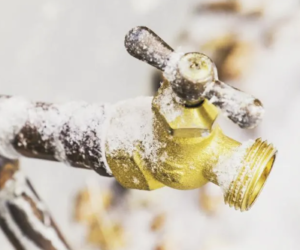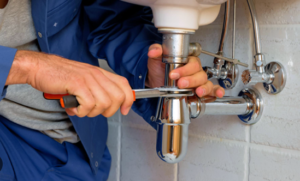As temperatures plummet, frozen pipes can be a serious issue for homeowners, especially if they end up bursting. Fortunately, there are things you can do to try to prevent this from happening.
Although Britain has a relatively mild climate, sudden cold snaps in winter months can see some properties experience frozen pipes, leading to costly repair bills.

Warm it up
If you experience a frozen pipe, The Met Office advises that you should first turn off the stop tap, which is usually located under the kitchen sink, before opening all the taps to drain the system.
You should then try to thaw the pipe out slowly, using hot water bottles or hot water-soaked towels.
Prevention is better than cure
Top tips for preventing the water in your pipes from freezing include:
1. Insulation
You can use pipe lagging on pipes that are exposed to cold air, such as those on external walls, in unheated rooms, and in outbuildings such as garages. This will keep the water inside the pipes warm and less likely to freeze.
2. Fix leaks and plumbing problems
Leaky taps and blocked drains can increase the risk of pipes freezing, so it is wise to make sure your system is in good working order; for example, you may want to consider lining your drains. If you are looking for drain lining Gloucester, specialists such as www.wilkinson-env.co.uk/sewer-repairs-drain-lining-concrete-cutting/drain-repairs/gloucester can help.

3. Keep the heating on
While energy bills are costly, it is best to set your heating to come on regularly, even at a low temperature. It is important that if your house is going to be empty for more than a few days, you set the timer to ensure the heating comes on for a short time each day.